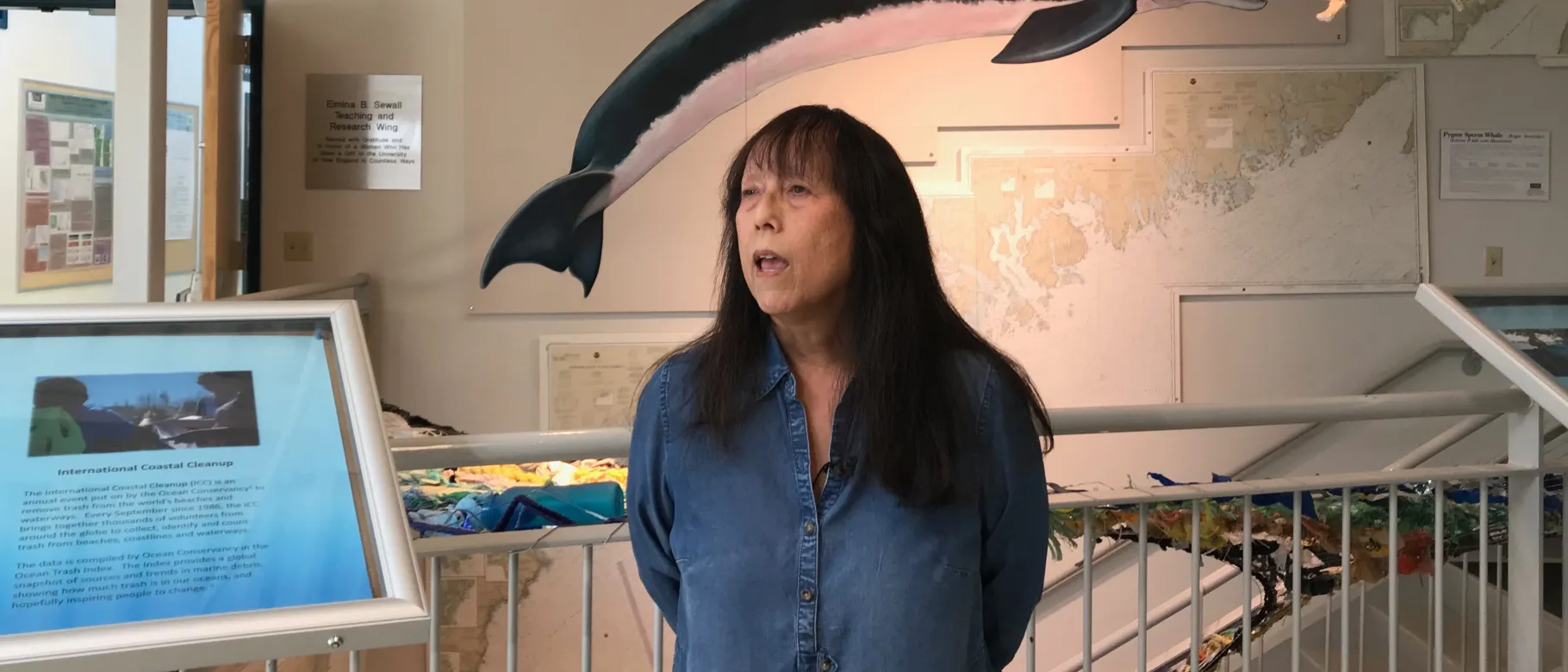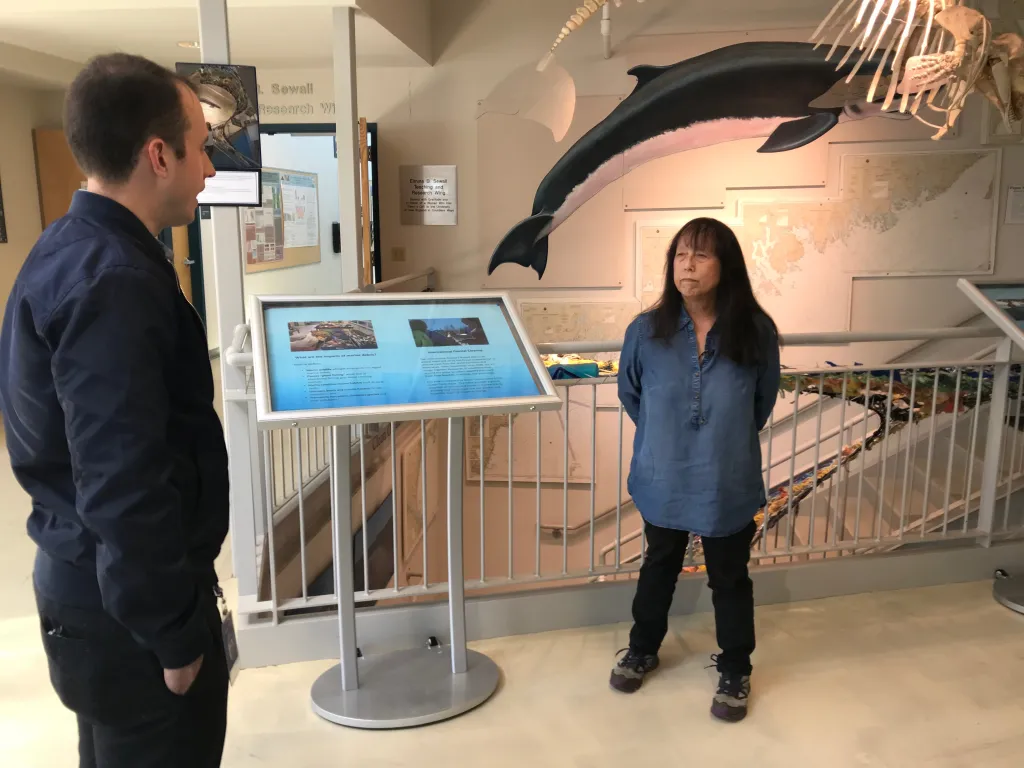UNE marine programs professor weighs in on proposed rules designed to protect right whales

A team created by the National Oceanic and Atmospheric Administration has proposed that New England lobstermen reduce their vertical trap lines by half as a way to save an endangered species.
North Atlantic right whales have become entrapped and drowned in the lines. There are only about 400 of the animals left on the planet.
About a million vertical lobster trap lines are in the waters along the route the whales take from southern areas up to Canada.
Kathryn Ono, Ph.D., associate professor in the School of Marine Programs, recently told NBC Boston that right whales are hard to track, but they do come into the Gulf of Maine.
She said entanglements of right whales in lobster trap lines do not always lead to death.
“About 85 percent of known right whales have scars from entanglements,” Ono told NBC Boston. “Maybe that didn’t kill them, but it isn’t good for them.”
The effects of the rule changes are likely to be felt most heavily in Maine, which typically accounts for four-fifths of the total U.S. lobster catch.
Lobsters are an important part of the state's tourism and economy. The Maine fishery brought nearly 120 million pounds of lobsters to shore last year.
